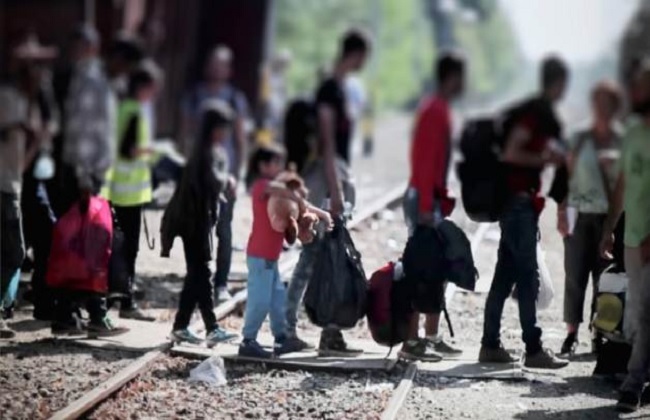
As involuntary migration rises around the world, partly in response to the impacts of climate change, justice for those leaving their homes and families to earn a living is largely missing, said activists meeting at the World Social Forum (WSF) in Kathmandu on Sunday.
In various sessions, participants from Europe, northern Africa and Latin America detailed governments squeezing doors shut on migrants trying to enter their countries. Disturbing stories from Asia focused on individuals falling victim to employers and traffickers as their governments looked the other way while profiting from migrants’ income remitted home.
The WSF ends in Nepal’s capital Kathmandu on Monday. During the annual event global activists gather to discuss issues ranging from education to debt relief, legalization of sex work, and poor farmers’ lack of control over their land and resources.
“One of the women we talked to told us that she had to sleep with six to seven men daily for six months. The saddest part is the employer’s wife regularly gave her a pill so she wouldn’t get pregnant,” said a researcher with the Bangladeshi organization OKUP. “Another worker was diagnosed with colon cancer: his employer sent him home without paying a single bit of his salary.”
OKUP hosted the session, Climate Change, Migration and Modern Slavery, to share its report documenting the treatment given to migrant workers from coastal regions in Bangladesh who were forced to leave after the impacts of climate change destroyed their farms and other livelihoods.
Research found that 51% of households migrated after being hit by cyclones, floods, salt water intrusion in their fields, erratic rainfall and other climate disasters. “There is no sustainable adaptation opportunities for them. In most cases people receive assistance from the government after disasters, but there is no sustainable assistance. That’s why people rely on loans to rebuild their houses or restart their farming activities,” said OKUP Chairperson Shakirul Islam.
“Before they can repay the money they experience the next cycle of climate emergency,” he added, making them desperate to go earn money elsewhere in the country or abroad.
Eighty-six percent of those displaced migrate within the country; 14% internationally. En route 90% face excessive fees, 81% do not get a promised work permit and 78% have their salaries held back. “I strongly believe that the same situation is present in other countries in South Asia,” said Islam.
Malaysian activist Sumitha Shaanthinni Kishna cautioned the group to not blame climate change for the migrants’ problems. “The fear I have is governments using climate change to justify migration. They will say ‘that’s why we have to send our migrants out’. They have done this to justify migration due to poverty.
